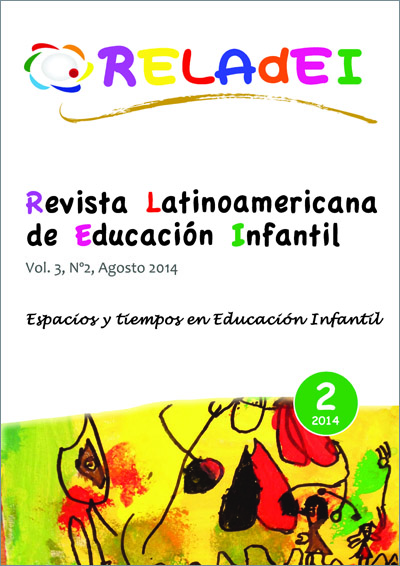Environments for childhood: schools between experience and project
Main Article Content
Vol. 3 No. 2 (2014): Tiempos y Espacios en la Educación Infantil, Monográfico/Tema del mes, pages 51-80
Submitted: Feb 20, 2018
Published: Feb 21, 2018
Abstract
We are approaching a world, that of the school, whose architecture is apparently to be the reflection of the different pedagogies that give origin. An open dialogue between disciplines, a meeting where the space becomes a pedagogical deed of first order would be reflected as well.
But the reality is different: while most of the panorama of the architecture school does but fit models established for short-term requirements, only a peripheral minority of proposals pursuing other possible order of things, whose significance is vital however, even critical, for childhood.
Front of the inexhaustible richness of this approach, we find mostly school architectures that leave aside the main purpose of building spaces for children reducing their discourse to a strategic attitude focusing on optimization of habitual standards and problem-solving.
Thus, dominate the approaches which, in the best of cases, are a reflection of pedagogies of yesteryear who seem to want to renew its validity in search of a rigid unit between architectural form and its disciplined content.
However, although still limited, some proposals seem to form a new generation of architectures: assuming the complexity of the challenge and its inevitable modernity with naturalness, take the risk of thinking directly on the timeliness of the present.
But the reality is different: while most of the panorama of the architecture school does but fit models established for short-term requirements, only a peripheral minority of proposals pursuing other possible order of things, whose significance is vital however, even critical, for childhood.
Front of the inexhaustible richness of this approach, we find mostly school architectures that leave aside the main purpose of building spaces for children reducing their discourse to a strategic attitude focusing on optimization of habitual standards and problem-solving.
Thus, dominate the approaches which, in the best of cases, are a reflection of pedagogies of yesteryear who seem to want to renew its validity in search of a rigid unit between architectural form and its disciplined content.
However, although still limited, some proposals seem to form a new generation of architectures: assuming the complexity of the challenge and its inevitable modernity with naturalness, take the risk of thinking directly on the timeliness of the present.
Keywords:
Educational Architecture, Learning Ambiances, Territories of Childhood, Ecology, Emotion Arquitectura Escolar, Ambiente de Aprendizaje, Territorios de la Infancia, Ecología, Emoción
Downloads
Download data is not yet available.

